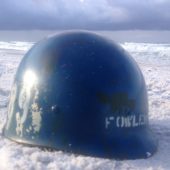This guide provides a detailed overview of the steps required to become a Navy SEAL, enabling those with an IQ of 150 and advanced professional skills to begin their journey toward this elite special ops-level training program. The journey towards becoming a part of the elite special ops-level training program involves intense physical and mental preparation, starting from your college years.
Joining the Navy while still attending colleges that offer Navy ROTC is one of several paths to this prestigious role. You'll then undergo rigorous physical training at Great Lakes boot camp - an experience that's just the tip of the iceberg when it comes to SEAL training.
The process doesn't end there. Once basic military training is complete, prospective SEALs must choose between A school or BUD/S (Basic Underwater Demolition/SEAL) where they learn critical skills like EMT basics and underwater knot tying. This blog post details each step on how to become a Navy SEAL with clarity and precision, offering insights into everything from pull comp testing under high-stress conditions to specializing after graduating from buds.
Table of Contents:
- The Path to Becoming a Navy SEAL
- Basic EMT Skills and BUDS Training
- Pull Comp - Testing Your Comfort Underwater
- Graduating From BUDS and Specializing
- Proving Yourself As An Operator
- Transitioning to Being a Confident Operator
- FAQs in Relation to How to Become a Navy Seal
- Conclusion
The Path to Becoming a Navy SEAL
Every journey begins with a single step. For Clint Emerson, that first step was taken in Texas as an average kid with a knack for mischief. Little did he know then that his path would lead him to become one of the most elite soldiers - a Navy SEAL.
Joining the Navy while still in college.
Emerson's military journey began when he joined the Navy during his college years. Making a decision to join the Navy wasn't simple, but it was motivated by ardor and resolution. He knew this choice would set him on a challenging yet rewarding career path.
Undergoing physical training at Great Lakes boot camp.
The next stage of Emerson's journey took place at Great Lakes where he underwent rigorous physical training including swimming, pull-ups, push-ups, sit-ups, and runs as part of boot camp. This intensive period served not only to build up his physical strength but also his mental resilience - two crucial components needed for every aspiring SEAL.
Becoming comfortable and confident as an operator didn't happen overnight for Emerson or any other SEALs out there. As per Emerson's experience shared in many interviews like this one from SOFREP, it takes somewhere around three to five years before you start feeling like more than just 'the new guy' within your command unit.
This time is filled with continuous learning and improvement both individually and collectively within teams, thus emphasizing the importance of dedication and perseverance throughout this challenging yet rewarding career path. But no matter how long it takes or how hard it gets, each day brings them closer to their goal: becoming fully-fledged members of some of the world's most elite military units - The U.S. Navy SEALS.
Key Takeaway: Clint Emerson, a mischievous kid from Texas, embarked on a journey to become a Navy SEAL. Joining the Navy during college, he underwent intense physical training at Great Lakes boot camp and learned that it takes dedication and perseverance to become an elite operator in the U.S. Navy SEALs.
Basic EMT Skills and BUDS Training
After surviving boot camp, the next step to becoming a Navy SEAL is either A school or BUDS (Basic Underwater Demolition/SEAL) training. A school is for nerds, BUDS is for badasses.
Choosing between 'A' school or BUDS after boot camp
A School offers specialized training for different naval careers, like fixing planes or playing with nuclear stuff. But if you want to be a real-life action hero, choose BUD/S training.
Learning basic EMT skills during BUDS
Besides swimming with fins and getting sandy, BUDS also teaches trainees basic Emergency Medical Technician (EMT) skills. Because saving lives is just as important as kicking ass.
The first weeks at BUD/S in San Diego are spent learning these lifesaving skills and getting ripped. It's where future SEALs become warriors and potential lifesavers.
It's tough, but it prepares them for real-life situations they'll face as active-duty operators. From gunshot wounds to cardiac arrests, they learn it all.
Basic EMT Skills and intense workouts shape these candidates into battle-ready seals. Prepare yourself for the adventure that's just starting.
Pool Competency - Testing Your Comfort Underwater
Being a Navy SEAL trainee means facing the ultimate challenge: the Pool Comp, aka Pool harassment. This underwater stress test pushes your limits and measures how well you handle high-pressure situations while submerged in deep water.
Experiencing Shark Attacks as Part of Pull Comp Testing
The 'shark attack' is a crucial part of this test. Don't worry, no actual sharks involved. Instructors simulate chaos by disrupting your breathing apparatus underwater. It's not about terrorizing, but more to do with assessing if you can stay composed and figure out a way through the situation efficiently.
Remaining Calm Under High-Stress Underwater Conditions
Your ability to stay calm during intense moments directly impacts whether you pass the pull comp test. It's all about showing control over panic reactions when faced with unexpected challenges - a crucial skill every Navy SEAL must master.
Apart from physical strength, mental resilience plays an equally important role here. Techniques like controlled breathing exercises, visualization strategies, and positive self-talk are often used by trainees to maintain composure during these stressful situations. This Military Fitness guide provides useful tips on handling stress at Navy SEAL BUDS.
Becoming comfortable with discomfort is key in surviving to pool "comp testing ”and throughout your journey to becoming a fully-fledged operator within the elite ranks of the U.S. Navy SEALs. It's not just about passing tests; it's about proving that no matter how tough things get, you won't crack under pressure.
Graduating From BUD/S and Specializing
Finally, the day arrives when you can bid farewell to the torturous ordeal known as Basic Underwater Demolition/SEAL (BUD/S) training. Graduation is like a breath of fresh air after being submerged for too long. Time to celebrate.
Specialization: Finding Your SEAL Superpower
Once you've survived the madness of BUD/S, it's time to choose your path to greatness. Will you become a master of ordnance, handling military weapons like a boss? Or maybe you'll take the leap as a paratrooper, soaring through the sky like a majestic SEAL eagle? The decision is yours, comrade. Choose wisely and embrace the challenges and rewards that come with it.
But wait, there's more. It's not just about picking a specialty. You have to prove yourself worthy of joining a SEAL team. It's not something you can just get without putting in the work, buddy. You gotta earn it.
Proving Your Worth: Chiefs Board and Walkthroughs
Picture this: a room full of senior enlisted personnel, scrutinizing your every move. That's the Chiefs Board. They'll evaluate your performance throughout training and assess your potential contribution to the team. No pressure, right?
But that's not all. You also have to ace the walkthroughs, where you showcase your skills under timed conditions. Can you assemble weapon parts correctly while the clock is ticking? It's like a SEAL version of a reality show, but with higher stakes. ming a Navy SEAL. #SEALtraining #NavySEALs"Click to Tweet
Proving Yourself As An Operator
Remember, failing these tests means you're out of the game. No SEAL team for you. So, bring your A-game and show them what you're made of.
The journey to becoming a Navy SEAL involves pushing oneself beyond one's own boundaries through testing and difficult obstacles. Once the initial stages are completed, new members face a crucial stage of proving their mettle as an operator.
Prove Yourself or Get the Boot
In this phase, recruits have limited attempts to pass tests like assembling weapon parts correctly under timed conditions. Failing may result in being expelled from the program. It's like real-life combat, where there's no room for error. Check out some of these rigorous training exercises.
A Year of Intense Platoon Training
After passing individual tasks, members join platoons for year-long intensive training. They master advanced skills like tactical shooting and close-quarters combat while working closely with their team.
Recruits must also be mentally strong and able to endure difficult situations. Recruits endure grueling drills that test their endurance and ability to perform under extreme stress conditions. Get insights into this demanding phase.
Becoming a Navy SEAL isn't just surviving tough training, it's excelling at it by continuously improving individually and as a team.
Transitioning to Being a Confident Operator
Once you become a Navy SEAL, the journey doesn't end with just rigorous training and physical feats; it takes several years of dedication to transition from an inexperienced novice to a competent operator. According to Clint Emerson, retired Navy SEAL and author of "100 Deadly Skills", it takes about three to five years to go from a newbie to a confident operator.
The Long Road to Confidence
It's a journey of continuous learning and improvement. You don't become a pro overnight. It requires endurance, commitment, effort, and tenacity. It's necessary to hone your talents in real-life scenarios and develop a strong mental and emotional fortitude.
Dedication and Perseverance: The Secrets to Success
Being an efficient operator isn't just about tactics and weapons. It's about dedication and perseverance. You need to be dedicated to your duties and always strive to improve. Perseverance means never giving up, no matter how many obstacles you face.
Teamwork is also crucial. With a team that values collaboration and encourages each other, greater strength is achieved to effectively handle any situation. Each member brings unique skills and perspectives, making the unit more diverse and powerful.
Ultimately, being a confident operator means making quick decisions under pressure, staying calm in chaos, and showing leadership when needed. It takes time and commitment, but the rewards are worth it. So if you dream of joining the ranks of elite soldiers like Michael Murphy or Chris Kyle, remember that the journey may be tough, but the payoff is huge.
FAQs in Relation to How to Become a Navy Seal
How long does it take to become a Navy SEAL?
The process can take up to 2.5 years, including initial training, Basic Underwater Demolition/SEAL (BUD/S) Training, and additional specialized training.
How hard is it to become a Navy SEAL?
Becoming a Navy SEAL is no walk in the park, with high attrition rates during the grueling BUD/S program. Learn more about the challenges here.
How do I prepare myself for becoming a Navy SEAL?
In conclusion, becoming a Navy SEAL is like going through a never-ending obstacle course, but with sharks and intense stress thrown in for good measure.
First, you gotta join the Navy while still in college and survive the physical training at Great Lakes boot camp - it's like a crash course in becoming a superhuman.
Then comes the tough decision of choosing between A school or BUD/S after boot camp - it's like picking between two equally terrifying roller coasters.
But wait, there's more! During BUD/S, you'll also learn basic EMT skills because apparently, saving lives is just another day at the office for a Navy SEAL.
And just when you thought it couldn't get any crazier, there's this thing called pull comp testing where you have to prove your underwater prowess while fending off imaginary shark attacks - because why not?
If you manage to survive all that, you'll graduate from BUDS and specialize in a specific area, like a Navy SEAL with a fancy job title.
But the fun doesn't stop there! You'll have to prove yourself through limited attempts and endure year-long intensive platoon-based training - it's like a never-ending boot camp on steroids.
And finally, after multiple years of dedication and perseverance, you'll emerge as a confident operator, ready to take on whatever challenges come your way - like a real-life action hero.










